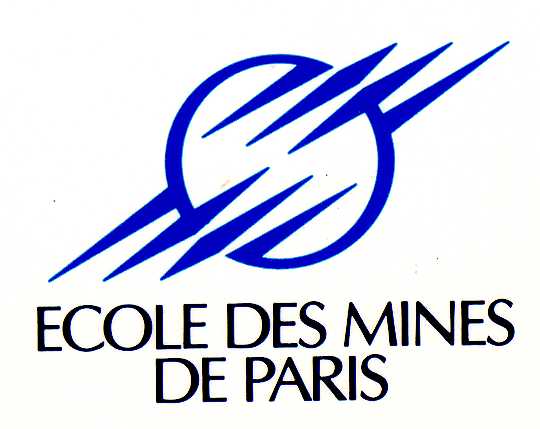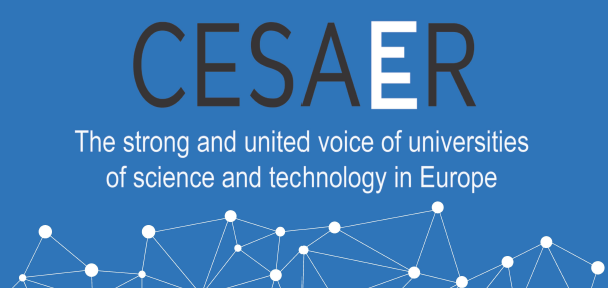
漢德百科全書 | 汉德百科全书
 诺贝尔奖
诺贝尔奖

高等师范学院(法语:École normale supérieure),也译作高等师范学校,简称巴黎高师(ENS Paris或Normale sup或ENS Ulm),位于巴黎乌尔姆路的巴黎高等师范学校,它是世界上高等师范学校中最古老的一所。如同国家行政学院,巴黎高师也没有颁发学位的权利,学生必须透过合作大学的注册学籍,来取得该大学颁发的学位。现为巴黎文理研究大学的成员之一。
拥有法国国籍并通过竞考入学的学生可获得准公务员身份(法语:Fonctionnaire-stagiaire),并享有公务员津贴。同时也负有十年义务,除在学校就读的四年之外,毕业后还需服务于公共单位至少六年。可以是为法国或另一欧盟国政府及国有企业服务,或是直接为欧盟工作,亦可在高等教育机构或是研究机构服务。最后一种情形下并无机构所在国家的限制。每年需向高师报备其义务履行情形,如不能履约则须支付补偿款。[4]
ENS位于巴黎第五区的乌尔姆路,受法国高等教育部部长直接管理[注 2]。物理学家马克·梅扎尔于2012年接替了哲学家莫妮克·坎托-斯佩伯担任校长[注 3]。其学生和校友被称为“高师人”(normaliens),Normalien一词通常是指巴黎高等师范学校的新老“学生”,即学校章程中指明的、通过口试和笔试选拔的学生[5]。高师里还有一些通过审核材料而选拔的“自由听课生”[6],传统上,他们不包含在Normalien之列,一般所谓“高师人”,仅指那些具有准公务员身份的学生(法语:Normalien élève),通常外国学生也不在高师人之列。唯近年来校方将材料选拔录取的“自由听课生”(法语:Auditeurs libres)改称为“师范学生”(法语:Normalien étudiant)[7]。
一般高师人毕业后多任教职,学校1987年8月26日的章程中写到,“通过高水平的科学与文化教育,学校培养的学生将从事基础或应用科学的研究、大学、预科班、中学的教学,以及国家、地方、公共机构或企业的行政管理”。截至2019年10月,共有22位校友及教职工获得诺贝尔奖、14位获得菲尔兹奖。
作为高等师范学校网络的起源[注 4],坐落在乌尔姆路上的这所学校如今已跻身欧洲最负盛名的教育机构之列[8][注 5]。学校通过全国最富选拔性的竞考之一——大学校竞考来录取新生,同时也招收国际学生[10][注 6]。
Die École normale supérieure de Paris (auch ENS Paris, ENS Rue d’Ulm oder verkürzt ENS Ulm) ist eine Hochschule in der Rue d’Ulm im Pariser Quartier Latin. Sie ist eine der angesehensten Grandes écoles in Frankreich und zählt zu den besten Universitäten Europas; wird das Augenmerk in internationalen Rankings auf Universitäten mit weniger als fünftausend Studenten gelegt, rangiert die ENS als zweitbeste Universität der Welt hinter dem California Institute of Technology.[1][2][3]
Die ENS wurde im Jahr 1794 mit dem primären Ziel der Ausbildung für Forschung und Lehre an Gymnasien und Universitäten gegründet. Zwei weitere Écoles normales supérieures entstanden im 19. Jahrhundert, die ENS Lyon und die ENS Cachan. Die Universität zählt insgesamt 13 Nobelpreisträger (darunter acht im Fach Physik), elf Fields-Medaillen-Preisträger und die Hälfte aller Rezipienten der Verdienstmedaille des Centre national de la recherche scientifique, mehrere hundert Mitglieder des Institut de France und zahlreiche Politiker und Staatspräsidenten als Alumni.[4][5][6]
Als Teil der Université de recherche Paris Sciences et Lettres (unter anderem mit der École des hautes études en sciences sociales (EHESS) oder dem Collège de France) wird sie zudem zur besten Universität von ganz Frankreich gezählt.[7]
高等師範学校(フランス語:École normale supérieure、略称 ENS、エコール・ノルマル・シュペリウール)は、フランス・パリのグランゼコール。PSL研究大学構成校、グランテタブリスマン構成校。高等教育機関の教員や研究者を養成を目標とし、一学年は300人程度の少数精鋭校である。エコール・ポリテクニーク、王立工芸院と並び、フランス革命時に創設された三校の一つである。
種類としての高等師範学校(École normale supérieure)はパリ、サクレー、リヨン、レンヌにそれぞれ四校存在するが、単に高等師範学校と言えば、パリ5区ユルム通りに所在する狭義のパリ高等師範学校を指す[注釈 1]。以下、本記事では同校について記述する。
なお、フランスでは、高等師範学校と師範学校の学生及び卒業生はノルマリアン(フランス語版) /ノルマリエンヌ(normalien / normalienne)と呼ばれる[4]。
The École normale supérieure of Paris (French pronunciation: [ekɔl nɔʁmal sypeʁjœʁ]; also known as ENS, Normale sup', Ulm or ENS Paris) is a grande école in Paris, France. It is one of the constituent members of PSL University.[6]
Originally conceived during the French Revolution,[7] the school was founded in 1794 to provide homogeneous training of high-school teachers in France but it later closed. The school was subsequently reestablished by Napoleon I as pensionnat normal from 1808 to 1822, before being recreated in 1826 and taking the name of École normale in 1830. When institutes for primary teachers training called écoles normales were created in 1845, the word supérieure (meaning upper) was added to form the current name. It has since developed into an institution which has become a platform for French students to pursue careers in government and academia.
The ENS has a highly competitive selection process consisting of written and oral examinations.[8] During their studies, many ENS students hold the status of paid civil servants.[9][10]
The ENS is a grande école and, as such, is not part of the mainstream university system. However, the vast majority of the academic staff hosted at ENS belong to external institutions such as one of the Parisian universities, the CNRS and the EHESS. This mechanism for constant scientific turnover allows ENS to benefit from a continuous stream of researchers in all fields. ENS full professorships are rare and competitive. Generalistic in its recruitment and organisation, the ENS is the only grande école in France to have departments of research in all the natural, social, and human sciences.
Due to the selectivity of its entrance exam and its turnover among French researchers, it has a high proportion of prize laureates and therefore a very good reputation. The school has achieved particular recognition in the fields of mathematics and physics. Its alumni include 14 Nobel Prize laureates, of which 8 are in Physics (ENS has the highest proportion of Nobel laureates among its alumni of any institution worldwide[11]), 12 Fields Medalists (the third most of any university in the world), more than half the recipients of the CNRS's Gold Medal (France's highest scientific prize) and several hundred members of the Institut de France, and scores of politicians and statesmen.[12][13] The school has achieved particular recognition in the fields of mathematics and physics as one of France's foremost scientific training grounds, along with notability in the human sciences as the spiritual birthplace of authors such as Julien Gracq, Jean Giraudoux, Assia Djebar, and Charles Péguy, philosophers such as Henri Bergson, Jean-Paul Sartre, Louis Althusser, Simone Weil, Maurice Merleau-Ponty and Alain Badiou, social scientists such as Émile Durkheim, Raymond Aron, and Pierre Bourdieu, and "French theorists" such as Michel Foucault and Jacques Derrida.[14][15][16] The school's students are often referred to as normaliens. [9][17]
Its model has been replicated elsewhere, in France (at the ENSes of Lyon, Paris-Saclay, and Rennes), in Italy (at the Scuola Normale Superiore in Pisa[18]), in Romania, in China and in former French colonies such as Morocco, Mali, Mauritania, and Cameroon.
L'École normale supérieure6, appelée aussi « de la rue d'Ulm », « Ulm », « Normale Sup' », parfois « ENS-PSL »7 ou « ENS », est l'une des institutions universitaires et de recherche les plus prestigieuses et les plus sélectives de France8, spécialisée en lettres et en sciences. Elle est un « établissement-composante » de l'université Paris sciences et lettres (PSL)9.
Si ses origines remontent à la Révolution française, elle n'existe sous sa forme actuelle que depuis 1826. La mission de cette grande école publique et intégralement financée par l'État est de « prépare[r], par une formation culturelle et scientifique de haut niveau, des élèves se destinant à la recherche scientifique fondamentale ou appliquée, à l'enseignement universitaire et dans les classes préparatoires aux grandes écoles [CPGE] ainsi qu'à l'enseignement secondaire et, plus généralement, au service des administrations de l'État et des collectivités territoriales, de leurs établissements publics ou des entreprises »10.
L'école est placée sous l’autorité directe du ministre chargé de l’Enseignement supérieur11 ; son siège est situé rue d’Ulm, dans le Quartier Latin de Paris, au cœur du 5e arrondissement de Paris. Elle est dirigée par le physicien Marc Mézard depuis 2012.
Elle fait partie du réseau des écoles normales supérieures destinées à former des professeurs agrégés (Lyon, Paris-Saclay (ex-Cachan), Fontenay-Saint-Cloud, Rennes en France, Pise en Italie et une vingtaine d'établissements africains).
Elle est l’un des établissements d'enseignement européens les plus prestigieux. Ses anciens élèves comptent quatorze12 prix Nobel13, dix médailles Fields14, deux prix Abel15, vingt-sept médailles d'or du CNRS, un grand nombre de membres de l’Institut, un président de la République et plusieurs ministres et Premiers ministres.
À ses 2 700 étudiants (élèves ou « normaliens », « étudiants normaliens », mastérants et doctorants confondus) s'ajoutent environ 100 post-doctorants et 1 100 enseignants et chercheurs permanents ou invités rassemblés dans 15 départements et une quarantaine d'unités de recherche3. La majorité des 390 enseignants-chercheurs affectés à l'ENS appartient à des universités tierces ou au CNRS. Les recrutements directs de professeurs par l'ENS sont rares : seuls 22 professeurs appartiennent à l'ENS toutes disciplines confondues (actifs et émérites).
L'École normale supérieure è un ente di insegnamento superiore francese, costituito al fine di formare la classe docente e quella dirigente del Paese. L'istituto fa parte delle cosiddette grandes écoles francesi, sotto la tutela del ministero dell'educazione nazionale. Detta anche Normale sup, fu la prima in ordine di tempo, sebbene oggi ne esistano altre due: l'ENS Lyon e l'ENS Cachan. L'École normale supérieure è inoltre legata alla Scuola normale superiore di Pisa, la quale era inizialmente una filiale della Scuola parigina.
Tra i suoi ex alunni compaiono 14 premi Nobel, di cui 8 per la fisica (la più elevata percentuale al mondo in relazione al numero di studenti[1]), 12 medaglie Fields, nonché più di metà dei destinatari della medaglia d'oro del CNRS[2].
La Escuela Normal Superior de París (también conocida como École normale supérieure, Normale Sup, Normale, ENS, ENS-Paris, ENS-Ulm o Ulm) es una Escuela Normal Superior francesa fundada el 30 de octubre de 1794, cuyo campus principal está situado en la rue d'Ulm (Calle de Ulm) de París. ENS-"Ulm" es l'escuela de fundación, reservada para los hombres hasta 1985.
La ENS es considerada la escuela más prestigiosa de Francia y forma a la élite de la investigación científica de ese país. Entre sus egresados se encuentran 13 ganadores del Premio Nobel (Albert Fert, Alfred Kastler, Claude Cohen-Tannoudji, Gabriel Lippmann, Jean Perrin, Louis Néel, Pierre-Gilles de Gennes, Paul Sabatier, Gérard Debreu, Henri Bergson, Jean-Paul Sartre, Romain Rolland, Serge Haroche) y 11 ganadores de la Medalla Fields (Alexander Grothendieck, Alain Connes, Jean-Christophe Yoccoz, Jean-Pierre Serre, Laurent Lafforgue, Laurent-Moïse Schwartz, Ngô Bảo Châu, Pierre-Louis Lions, René Frédéric Thom, Wendelin Werner, Cédric Villani).
La ENS tiene campus anexos en Boulevard Jourdan y en el suburbio de Montrouge, así como un anexo para biología en Foljuif.
Высшая нормальная (педагогическая) школа (фр. École normale supérieure; другие названия: «ENS Ulm», «ENS de Paris», «Normale Sup» или просто «Ulm») — французское государственное учреждение в сфере высшего образования во Франции в подчинении министерства высшего образования и научных исследований Франции. Нынешний директор — Марк Мезар (фр. Marc Mézard).
Высшая нормальная школа — одно из самых престижных высших учебных заведений Франции, для поступления в которое необходимо по окончании лицея проучиться несколько лет в специальных подготовительных классах («les classes préparatoires»), чтобы затем пройти строгий конкурсный отбор.
Главный кампус расположен на рю д’Ульм (улица Ульм, rue d' Ulm), 45 в V округе Парижа (отсюда название: Высшая Нормальная школа (Ульм)).
По состоянию на 2014 год признаётся лучшим высшим учебным заведением Франции и занимает 35 место в мировом академическом списке[1].
 突破奖
突破奖
 生命科学突破奖
生命科学突破奖

 欧洲的高等院校
欧洲的高等院校

 历史
历史
 公元 1000 - 1500
公元 1000 - 1500

 医疗、制药、 康复
医疗、制药、 康复
 医科高等院校/研究院
医科高等院校/研究院
 诺贝尔奖
诺贝尔奖
 诺贝尔文学奖
诺贝尔文学奖
 诺贝尔奖
诺贝尔奖
 诺贝尔和平奖
诺贝尔和平奖
 诺贝尔奖
诺贝尔奖
 诺贝尔生理学或医学奖
诺贝尔生理学或医学奖
 诺贝尔奖
诺贝尔奖
 诺贝尔化学奖
诺贝尔化学奖
 诺贝尔奖
诺贝尔奖
 大学/研究院
大学/研究院
 瑞士的大学
瑞士的大学

 科学技术
科学技术
 *世界著名研究机构
*世界著名研究机构

保罗·埃尔利希(Paul Ehrlich)生于1854年,卒于1915年,是德国血液学家和免疫学家,也是化学疗法的奠基人之一。因免疫学方面的贡献与米奇尼科夫共享1908年的诺贝尔生理学或医学奖。
埃尔利希基金会最高医学研究奖是弗劳·黑德维希·埃尔利希于1929年为纪念她的丈夫保罗·埃尔利希而设立的,路德维希·达姆施泰特奖金是为纪念 保罗·埃尔利希的好友、著名的化学家路德维希·达姆施泰特而设立的。1952年这两项奖合并为现在的保罗·埃尔利希-路德维希·达姆施泰特奖金(Paul Ehrlich and Ludwig Darmstaedter Prize)。 埃尔利希奖每年颁发一次,用以奖励在化学疗法、细菌学、免疫学、血液学及癌症研究等领域的杰出成就。奖金分主要奖金与附属奖金两种。主要奖金于偶数年颁 发,包括一枚金质奖章和50,000马克的奖金;附属奖金于奇数年颁发,侧重于奖励青年科学家,包括一枚银质奖章和50,000马克的奖金。德国公共卫生 部也承担一部分奖金的提供。

Paul Adrien Maurice Dirac (* 8. August 1902 in Bristol; † 20. Oktober 1984 in Tallahassee) war ein britischer Physiker.
Dirac war ein Mitbegründer der Quantenmechanik. 1933 wurde er mit dem Nobelpreis für Physik ausgezeichnet. Eine seiner wichtigsten Entdeckungen ist in der Dirac-Gleichung von 1928 beschrieben, in der Einsteins Spezielle Relativitätstheorie und die Quantenmechanik erstmals zusammengebracht werden konnten. Damit legte er auch die Grundlagen für den späteren Nachweis von Antimaterie.
狄拉克(Paul Adrie Maurice Dirac,1902年8月8日~1984年10月20日),英国理论物理学家,量子力学的奠基者之一,因狄拉克方程获得1933年诺贝尔奖。 狄拉克出生於英格兰西南部的布里斯托,在布里斯托大学取得电子工程和数学两个学位之後,於1926年在剑桥大学取得博士学位。 他对物理学的主要贡献是:给出描述相对论性费米粒子的量子力学方程(狄拉克方程),给出反粒子解;预言磁单极;费米—狄拉克统计。另外在量子场论尤其是量 子电动力学方面也作出了奠基性的工作。在引力论和引力量子化方面也有杰出的工作。 他一生著作不少.他的《量子力学原理》,一直是该领域的权威性经典名著,甚至有人称之为「量子力学的圣经」。
保罗·阿德里安·莫里斯·狄拉克[注 1],OM,FRS(英语:Paul Adrien Maurice Dirac,1902年8月8日—1984年10月20日),又译狄喇克,英国理论物理学家,量子力学的奠基者之一,曾经主持剑桥大学的卢卡斯数学教授席位,并在佛罗里达州立大学度过他人生的最后十四个年头。
狄拉克在物理学上有诸多开创性的贡献。他统合了维尔纳·海森堡的矩阵力学和埃尔温·薛定谔的波动力学,发展出了量子力学的基本数学架构。他给出的狄拉克方程可以描述费米子的物理行为,解释了粒子的自旋,并且首先预测了反粒子的存在。而他在路径积分和二次量子化也扮演了的先驱者的角色,为后来量子电动力学的发展奠定了重要的基础。此外,他将拓扑的概念引入物理学,提出了磁单极的理论。
1933年,因为“发现了在原子理论里很有用的新形式”(即量子力学的基本方程——薛定谔方程和狄拉克方程),狄拉克和薛定谔共同获得了诺贝尔物理学奖[1],是当时史上最年轻获奖的理论物理学家。
 法兰西岛
法兰西岛





 柏林州
柏林州
 欧洲高级工程教育和研究协会
欧洲高级工程教育和研究协会




